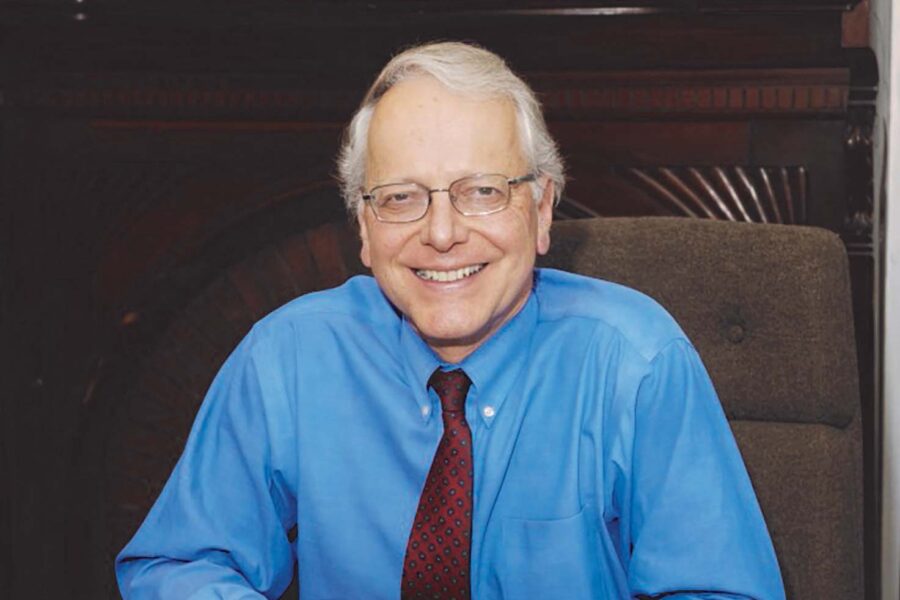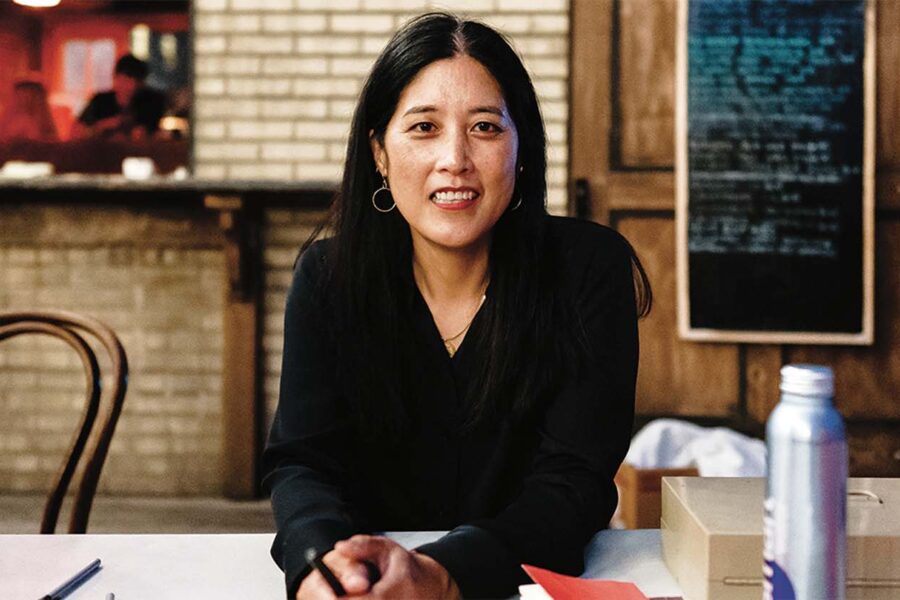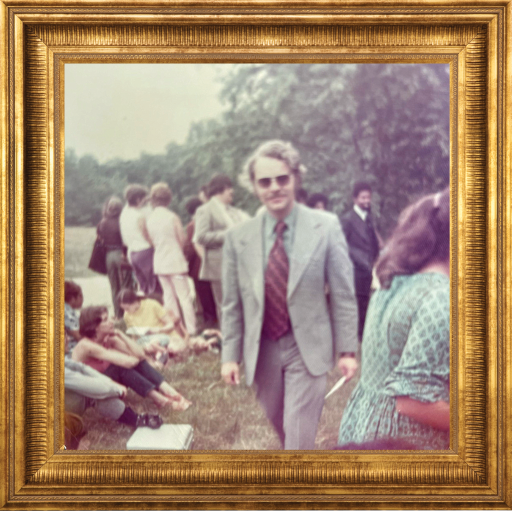
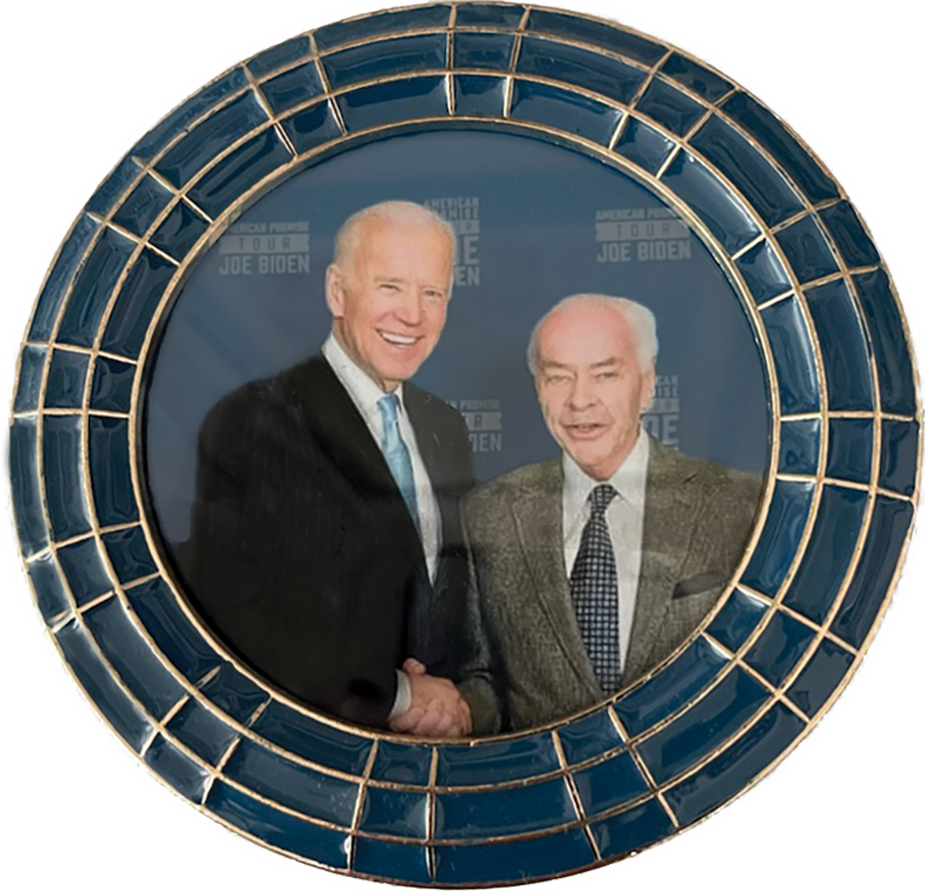
It’s the ones who are in the trenches, day after day, year after year, decade after decade, that really make an impact,” says Walter ‘Wally’ Clinton ‘73 (Antioch DC, BA), his voice tinged with pride. “It’s those with the determination and the grit to stay in it for a long time and stay true to their principles.” At least, he says, “That’s what I tell my kids.”
This combination of thoughtfulness and friendly intensity is typical of this legendary political advertiser and crusader. When I first reached out to request an interview, I addressed him as “Mr. Clinton.” In his response, he addressed me by my first name, Jesus. There was something about the way he responded that put me immediately at ease. Soon I was calling him by his nickname, Wally, and I assume he’s okay with me using this nickname for the rest of this piece. In fact, I think he’d insist on it.
Today Wally lives with his wife on Florida’s Gulf Coast, just north of Tampa. But that’s not where he made his biggest impact. That work he mostly did 900 miles north, in Washington, DC. That’s where, over the last 50 years, he worked on countless progressive causes, helped to invent political telemarketing, and built the Clinton Group into a key Democratic consulting firm. I imagine him in the Florida dusk, watching the sun set over the Gulf, reflecting on his own life, his own grind.
A Winding Path to Politics
Born in 1940, Wally grew up in the Highland Park neighborhood of Detroit, at the time an area with an economically and racially diverse population. “It was really mixed,” Wally, who is white, says. “The high school I went to was probably about 20% Arab and maybe 7 or 8% African American. And there were Latinos there also, and then the rest was a real mix, like the America that exists today,” he says proudly.
His family was working-class, but by no means apathetic. “Politics was table talk at our house,” he explains. His father,
a commercial artist, didn’t make much money, and his mother worked odd jobs. Struggles with money were a regular theme. When Wally was fifteen years old, his parents divorced. “I was pretty much on my own after that,” he says. He ended up working his way through high school as a valet parking cars at a golf course not far from home.
After graduating high school in 1958, Wally had to decide for himself what his next step would be. As he explains, “there were three choices young men had: go on to college or take some sort of an apprenticeship . . . or go into the army.” His desire was to go to college, but economic circumstances were such that he couldn’t, at least not then. Wally chose the army. And it turned out to be a fine decision. “It was a solid experience for me,” he says now. “I’m really glad I did it.”
Once he left the Army in the early sixties, he had a brief stint in the insurance business but found himself motivated by the civil rights movement, the anti-war movement, and labor organizing. He felt moved to act. In 1968, Wally quit the insurance business and relocated to Washington, DC. His sister lived there—she worked for the Democratic National Committee—and she helped him find work on Bobby Kennedy’s Presidential campaign.
A National—and Personal—Turning Point
Most of us can point to life-defining moments, to events that lift the veil of indecision and often redefine our lives, lending clarity to an otherwise turbid vision of our future. For Wally, such events came first in April of 1968, when Martin Luther King was assassinated and then in June, when Bobby Kennedy was killed. Both of those horrific events had a profound impact on Wally’s life. In the aftermath, he made the decision to dedicate his career to working for progressive causes “until I couldn’t do it anymore.” He explains that his motivations were simple but profound. “I wanted to do good. I wanted to make sure the right people got elected.”
In 1971 he started his own political consulting group. An early client was a young county councillor from Delaware named Joseph Robinette Biden, who successfully unseated an incumbent US Senator. But from the beginning he found himself competing as a consultant against people with graduate degrees. And he had never even started college. Wally was by that point married with children, so he sought a university that would work with him to finish his degree.
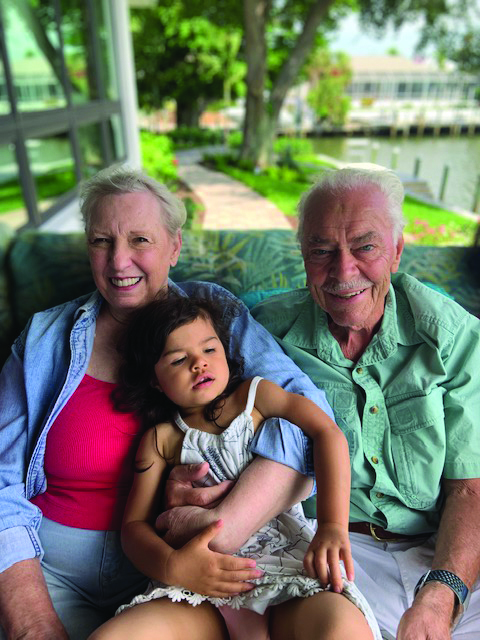
That’s when he found Antioch’s campus in Washington, DC. He enrolled as a student there and began working towards a degree in Political Science. For someone with a life experience as varied as Wally’s, it was perfect to enter a program geared towards adult learners. He earned credit for campaign proposals he had written, as well as for the training he had received in the Army. He graduated with his BA in 1973.
It was at Antioch that Wally met Jack O’Dell, a professor who would go on to be an important figure in his life. O’Dell was generous in sharing his story and wisdom with his Antioch students. Before becoming a professor, O’Dell had been the director of Martin Luther King’s Southern Christian Leadership Conference. But then, due to previous ties to the Communist Party, the Kennedy Administration forced King to demote O’Dell.
To his students, O’Dell was “absolutely inspiring,” says Wally. “Quiet, but boy, he was committed and so knowledgeable. I think he was important in helping me to learn how to make decisions, what to measure, what’s important, what’s not important. He helped my decision-making process a great deal, and so did Antioch.”
In this and in many other ways, studying at Antioch gave Wally key skills—and strengthened his resolve to live by and remain true to his values. In a professional sense, it paid off, too: the degree cemented his credibility as a political consultant, elevating him and helping him build his company into a leading institution in the field of political consulting.
Wally began building out call centers to make calls and carry out surveys on behalf of progressive politicians and causes. The business grew exponentially. “For many years,” wrote the Routledge Handbook of Political Management in 2008, Wally’s firm, along with one other, “dominated the field of political telemarketing.”
His groundbreaking work as a political consultant went on to earn him a Lifetime Achievement Award in 2003 from the American Association of Political Consultants. Wally today is recognized as one of the pioneers of political telemarketing.
As our conversation concludes—him in Florida and me in California—Wally steers our talk to my own writing career. “It’s not easy to make a living as a writer,” he says. “I admire writers. I’d just encourage them to continue to speak their minds and from their heart. It’s a grind, but things happen with the grind.”
That might be good advice for a writer, but it’s also how Wally has led his own life. True to those values forged by overcoming obstacles along the way, and honoring his vow after the deaths of MLK and Bobby Kennedy, to keep doing this work “until I couldn’t any more,” Walter Clinton sought to do good. And so, he has.

